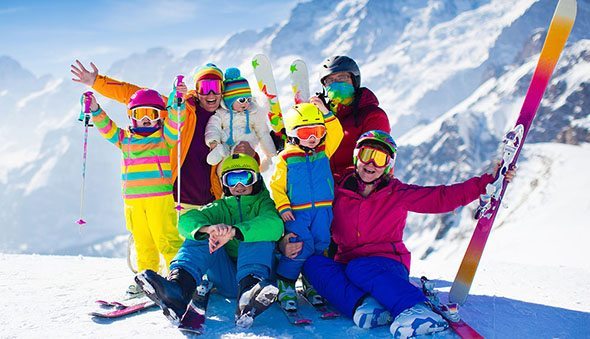
Sure, travel is fun and relaxing, but it can also be a learning experience, especially for the youngest members of your family. Exposing children to a different part of the country — or the world — at an early age will create memories and impart skills that they will carry with them their entire lives.
It’s never too early to equip children with the skills that they will need to thrive in a more interconnected and ever-changing world. One of the best ways to do that is through travel.
Travel can spark a child’s natural inquisitiveness at an age when they’re less self-conscious and eager for adventure. Travel opens up endless possibilities for learning about different cultures through language, food and customs. These adventures allow children to become comfortable with a wide variety of people and places.
In fact, studies show that well-traveled children have improved educational and career opportunities. A recent survey of nearly 1,500 U.S.-based teachers, commissioned by the Student and Youth Travel Association (SYTA), found that 74 percent of educators believe that travel has “a very positive impact on students’ personal development.”
Here are ways parents can make sure that travel experiences complement what children are learning in school.
Plan a trip that coincides with places they’ve learned about in textbooks. Travel to Philadelphia to see the Liberty Bell or Independence Hall, the building where both the U.S. Constitution and the Declaration of Independence were signed. Or a visit to the Great Wall of China can bring to life aspects of the Ming Dynasty.
Show children the locations where history was made. When learning about the Holocaust or reading Anne Frank’s Diary in school, perhaps travel to Amsterdam for a tour of the Anne Frank House.
If they’re learning a foreign language, such as Spanish, giving them a chance to speak it while on vacation in Spain or Argentina is an invaluable way to build up their skill and confidence.
Try to plan activities where your children can learn about local culture, including about the lives of kids their own age. That may mean attending a performance or concert, such as the Vienna Boys’ Choir or visiting a children’s museum, or just spending time in a local park or playground. If you’re planning a trip with a lot of time outdoors, help them appreciate nature so that as adults, they could visit to a wildlife refuge, where they can learn about endangered species and see animals in their natural habitat, which may help them to grow to be good stewards of the planet.
Traveling with children when they’re young can help ensure that as they grow older, they’ll greet new experiences with understanding, enthusiasm and confidence.
To learn more about planning a vacation with children, contact your travel advisor.